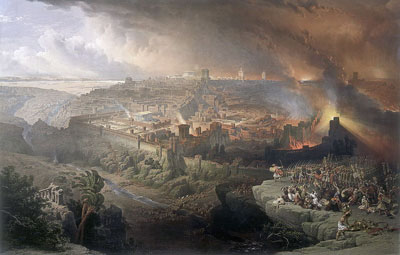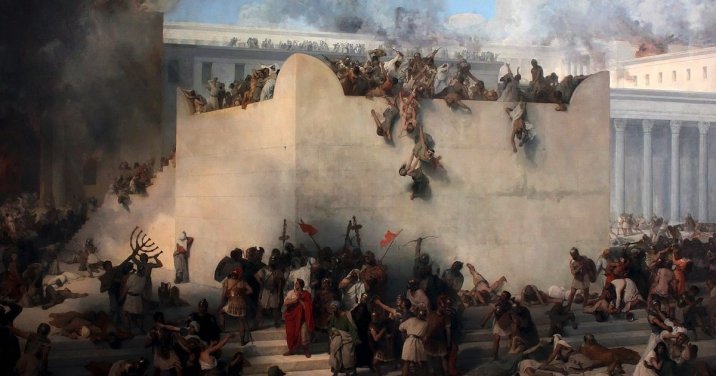Why are the works of Josephus important?
Perhaps it’s best to explore who Titus Flavius Josephus is first. He’s a tough figure to classify. Was he a cultural aristocrat? A theologically minded Pharisee? A politician? An author? A historian? In Josephus, we find all of these things—and more.
Josephus was born into the Jewish priestly order of Jehoiarib, the first of twenty-four priestly divisions organized by King David (1 Chron 24:7). Growing up, Josephus surpassed his peers in his study of Jewish law. After studying under the Pharisees, Essenes, and the Sadducees—the three major religious factions in first-century Jerusalem—he affiliated himself with the Pharisees.
Jerusalem was a powder keg. With a constant disdain for Jewish ideals, Rome inflamed their already tense relationship with the Jews. Between liberal use of Roman soldiers against Jewish citizens and Messianic Jewish factions who taught that the world would be ending soon, several factors were coming together to create the perfect climate for conflict. By the time Josephus had returned from a trip to Rome to negotiate with Nero for the release of imprisoned priests, his nation was in revolt.
Despite skepticism about an uprising, Josephus took the post as a military leader in the region of Galilee. Not all of Galilee was supportive of the revolution, and insurgents hoped to use Josephus’ birthright and successful negotiations with Rome as inspiration to the hesitant Galileans. Josephus found himself fighting a defensive war against an overwhelming force while simultaneously trying to quell conflict within Jerusalem.
Did Josephus support Rome?
This is where Josephus’ story takes a strange turn and why many consider him an opportunist and a traitor.
The Galilean city of Jotapata had fallen, and Josephus had found himself trapped in a cave with 40 other Jewish supporters. 
Many modern scholars accuse Josephus of orchestrating this outcome. (In fact, the Josephus Problem has become a mathematical problem where a person must decide where to stand in this circle in order to be the last one living.)
Josephus began to work for the Romans giving them information on the insurgence. Rome also put him to use trying to convince the rebels to surrender. Jerusalem would not heed the warnings of this traitor, however, and an agreement was never reached.
In 70 AD, Josephus was an eyewitness to the siege of Jerusalem. Rome destroyed the temple, and Jerusalem was sacked. According to Josephus, over one million people were killed during the siege, with another ninety-seven thousand were taken hostage. The death toll was high and the loss of the temple dealt a destructive blow to both Jewish identity and their ability to rally. The revolution was brought to a swift end.
When did Josephus write his histories?
After becoming a Roman citizen, Josephus was commissioned by Caesar Vespasian to write an account of the Jewish revolt against Rome. Josephus finished The War of the Jews in 78 AD. By the year 93, Josephus had finished his second major work, The Antiquities of the Jews (a landmark history of the Jews from Creation through the occupation of Palestine). In the latter part of his life, he wrote Against Apion and his autobiography The Life of Flavius Josephus.
Flavius Josephus remains one of our best sources of first-century history, as well as an essential resource for Old Testament textual criticism.
The works of Josephus from Logos
Not only can you get the complete Works of Josephus from Logos—as well as Josephus in Greek: Niese Critical Edition with Apparatus—but there are many more great references to help you get a grasp on his life and works.
If you are interested in the works of Josephus and what they can bring to your Bible study and understanding of the first century, explore the Flavius Josephus Collection.
Other great resources
Learn more about Josephus, or explore the resources below:
- Josephus and the New Testament
- Josephus: The Complete Works
- Flavius Josephus: Life of Josephus
- Flavius Josephus: Translation and Commentary, Volume 3 Judean Antiquities Books 1-4
- Flavius Josephus: Translation and Commentary, Volume 4 Judean Antiquities Books 5-7
- Flavius Josephus: Translation and Commentary, Volume 5 Judean Antiquities Books 8-10






